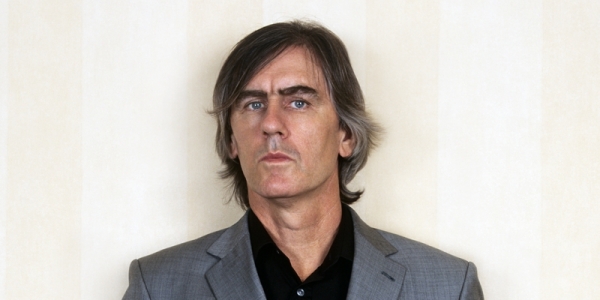“We basically decided to commit to this process of working the album from a couple of recordings we had,” says band founder Mica Levi. “That was going to be the beginning of songs, kind of build them, but they ended up just being warts and all. From there I just got into the writing as normal, but I was really excited about doing it like this with the recording already there and was writing [constantly]. It wasn’t like I wrote the song, and then the lyrics developed over time. My job was just to sing the lyrics – I almost didn’t have to think about the song, really.”
The fact these fledgling recordings exist at all is due to drummer Marc Pell. With his bandmates unaware he was recording the rehearsal, it allowed a level of creation and inhibition that became the bedrock of the entire album. Remarkably, Good Sad Happy Bad has great variety without losing any coherence. There is something oddly disquieting about its blend of simple, soothing sounds and unexpected movements, like waking abruptly from a dream. Establishing an overarching, whole-album experience was at the core of deciding which songs would be pursued and included. Yet, as keyboardist Raisa Khan explains, the trick was not to overthink the process.
“I think with this record, the reason it was quick and had to stay quick was the more you do to it, the more fraudulent it’s going to become,” she says. “We have to all stand back and make a judgement on it, to see if it feels like it should. To be honest, we made the decisions based on the flavours of songs more than anything. More than whether if it [felt] finished, it was more … what kind of feeling it could have. If we kept working, it might take it to the wrong mood.
“A song like Oh Baby stands on its own two feet quite well, but a lot of the other songs need to be seen as part of the record. Sometimes the ones you originally would like to sit in that means not going with your favourite at all. It has to be about the whole thing.”
“I find [a song is] great at first,” adds Levi. “But if there’s just one thing wrong with it, like there’s a little smudge, you start looking at that, try to fix it, and you just fuck everything up, and spend the rest of your time trying to get it back to where it was originally. The beginning is always the best bit. The hard part is taking it through to the end – that’s the work. I think there’s something that feels really pure in doing that. It’s like you’ve got to practice in your own time to get a performance together. By the time that you press record you should have your shit together enough that you trust what you’re going to do. In my mind that’s ideal, in terms of a performer.
“You can’t polish a turd,” she finishes matter-of-factly, and Khan chuckles. “You’ve got to know if it’s punching above its weight. If you’re fucking around with it too much, it just becomes a different thing.”
BY ADAM NORRIS

